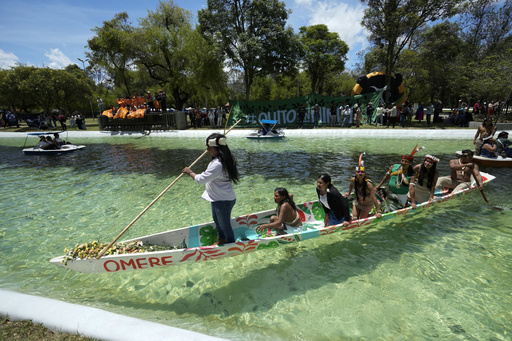In Ecuador, a year has passed since the public voted to stop oil drilling in the Amazonian Yasuni National Park but no significant steps have been taken to cease operations. The government is now requesting a five-year extension for the state-run oil company to withdraw from the area. This move has left Indigenous groups like the Waorani people, who inhabit the region, feeling frustrated by the lack of adherence to the referendum’s outcome.
Yasuni National Park is renowned for its incredible biodiversity and is home to Indigenous communities like the Taromenane and Tagaeri people, who live in voluntary isolation. The referendum last year received nearly 60% support from voters, aiming to preserve around 700 million barrels of oil in the ground to protect nature and Indigenous populations in the area.
Despite a constitutional court giving a deadline of August 2024 to halt drilling activities, the government has now requested an extension. The Ministry for Energy and Mines in Ecuador did not respond to requests for comments, but they are reportedly collaborating with the oil company on an “exit plan” for dismantling infrastructure and ceasing operations.
While some experts argue that the one-year timeline for shutting down operations was too short, President Daniel Noboa faces pressures to maintain revenue from the oil industry amid economic struggles and social unrest. The government’s request for a lengthy extension has raised concerns that the Indigenous communities and environmental conservation are not a priority for the administration.
The oil industry has a long history in the Ecuadorian Amazon, marked by frequent major spills and associated health issues for nearby residents. Critics claim that the government’s lack of budget allocation for dismantling oil drilling facilities this year signals their intention to continue extracting oil before closure.
The Union of People Affected by the Petroleum Operations of Texaco has reported multiple oil spills in the Ecuadorian Amazon in recent years, underscoring the environmental risks associated with ongoing drilling activities. Juan Bay, a leader from the Waorani community, is set to lead a delegation to the capital to engage with Congress, emphasizing the importance of including Indigenous voices in decision-making processes regarding the future of the region.
